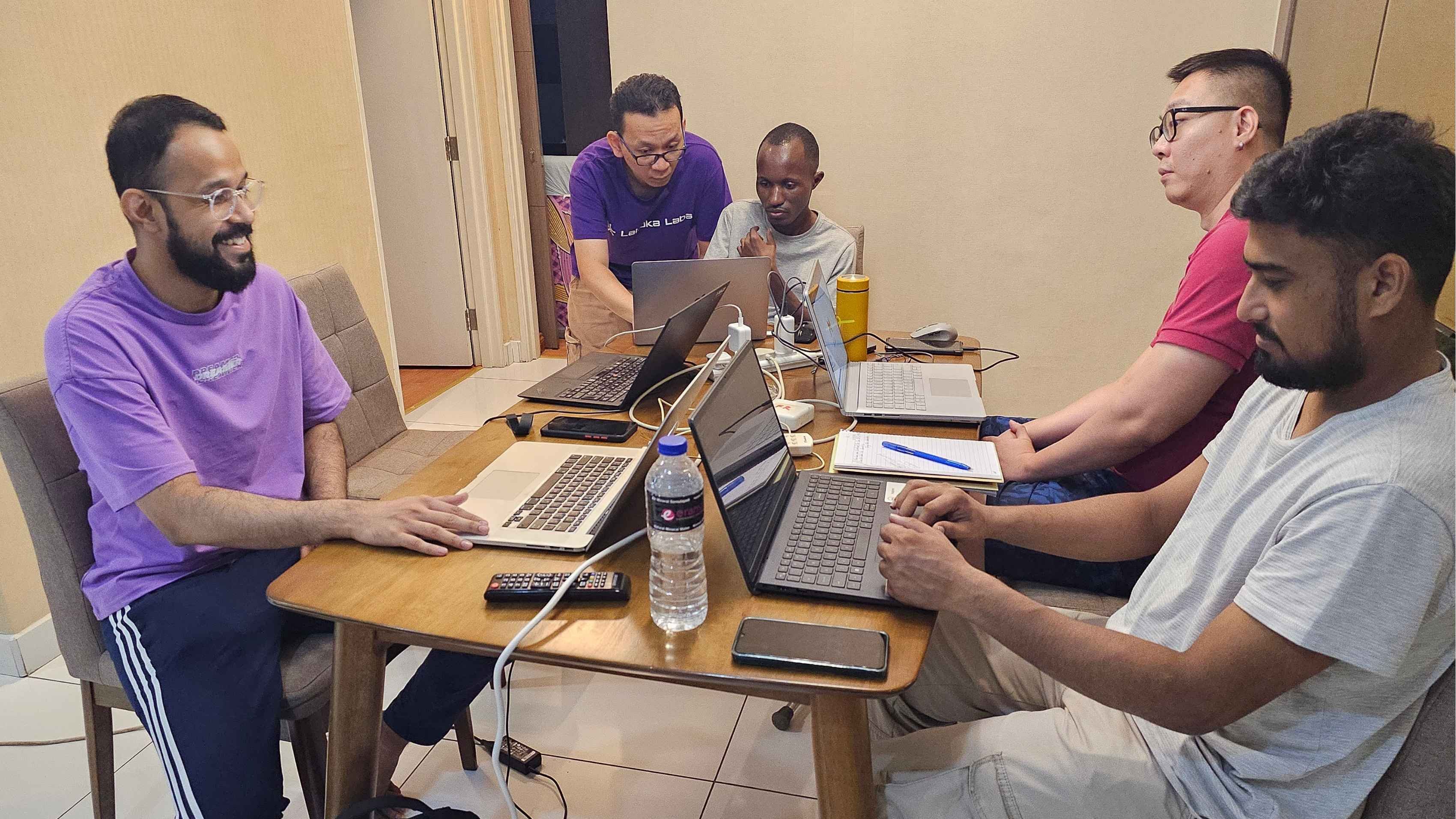How to Create a Collaborative Culture in Remote Teams

As someone working remotely for a company based in Japan, with team members located all over the world—including myself in Namibia—I’ve had my fair share of challenges and rewards. While remote work gives us flexibility, building a collaborative and connected team across different time zones and cultures can be difficult. However, the experiences I’ve had while working at Laloka Labs, the creators of Kafkai, have been invaluable in shaping my understanding of how to make remote work thrive.
In this article, I’ll be sharing strategies that have helped me build a collaborative remote culture and create stronger connections within our global team. These strategies have proven effective in overcoming the challenges of working across time zones and different cultural backgrounds.
My Experience as a Remote Worker for the First Time
When I first joined Laloka Labs as a Junior Backend Developer, I was filled with excitement but also a bit of nervousness. Working for a company based in a different country, in a completely different time zone, seemed like a huge challenge. At first, I felt isolated, trying to find my place in the team.
Over time, I found ways to integrate and adapt, which made the process smoother. Regular team meetings and opportunities to connect with colleagues helped me feel more included. Initially, I struggled with communication, but as I grew more comfortable, I found my voice. Sharing stories about my life, my culture in Namibia, and learning about the experiences of my teammates allowed me to feel a sense of belonging. These connections made a significant difference and eased the feelings of isolation.
As I became more confident, I started contributing to team discussions and projects with greater enthusiasm. The support I received and the opportunity to engage with my colleagues made me feel like a valued member of the team. This experience taught me the importance of communication and building relationships, even in a remote work setting.
Through this journey, I learned to face challenges, appreciate my contributions, and grow both in my career and personally. Remote work comes with its difficulties, but with the right approach and effort, it can be a fulfilling experience that brings people together from different parts of the world.

Why Collaboration is Important in Remote Teams
When you work remotely, one of the biggest advantages is the opportunity to collaborate with talented people from around the globe. However, this also introduces challenges, especially when team members are spread across various time zones. But here’s why collaboration remains important:
-
Strengthens Team Unity: With teams located in different parts of the world, it’s easy to feel disconnected. But collaboration fosters a sense of unity and belonging, making sure everyone is working towards the same goal. This togetherness is essential, especially when working remotely. Collaboration helps to bridge the geographical gap and brings the team closer together.
-
Promotes Innovation: Having a diverse team brings diverse perspectives, which is a huge advantage. I’ve experienced firsthand how collaborating with colleagues from different backgrounds has sparked creativity and led to new ideas and solutions. Remote work enables us to tap into unique ideas from different parts of the world, which we wouldn’t get in a traditional office setup.
-
Improves Problem-Solving: One of the best things about collaborating remotely is that it gives us access to a variety of skills and experiences. When challenges arise, we can count on the team’s collective knowledge to find solutions that are well-rounded and effective. By working together, we pool our strengths and overcome problems faster and smarter.
-
Builds Trust: Trust is a vital aspect of remote work. Without it, remote teams would struggle. Through regular communication and accountability, trust builds over time, and that’s been crucial for me. Having a transparent and supportive environment encourages autonomy and ensures that we all take ownership of our work, no matter where we are.
Challenges of Remote Work
Despite the advantages, remote work isn’t without its challenges. Here are a few I’ve encountered during my time at Laloka Labs:
-
Time Zone Differences: As a team working across the globe, scheduling meetings can be a logistical challenge. The time differences make it tricky to find a time that works for everyone. But I’ve learned that, with proper planning and tools, time zone issues can be managed without sacrificing collaboration.
-
Communication Gaps: Without face-to-face interaction, there’s always the risk of miscommunication. It’s easy for things to get lost in translation, especially when you’re relying on written messages. Being clear, concise, and mindful of tone has been crucial in maintaining smooth communication.
-
Cultural Differences: Working with people from different cultures comes with its own set of challenges. What might be normal in one culture can seem strange in another. That’s why being sensitive to cultural differences has helped me build stronger relationships and avoid misunderstandings.
-
Isolation: One of the most common challenges of remote work is feeling isolated. Without the daily in-person interactions that come with working in an office, it can sometimes feel lonely. But over time, I’ve found ways to combat isolation through consistent communication.

Build a Collaborative Culture in Remote Teams
Building a collaborative culture in a remote environment takes time, but it’s absolutely worth it. Here’s what I’ve learned about fostering collaboration in a global team:
1. Set Clear Expectations and Goals
From the start, setting clear goals and expectations helps keep everyone on the same page. I’ve found that when expectations are clearly defined, the team can work more efficiently. Everyone knows their role, the tasks at hand, and the larger goals we’re working towards. It’s important to be specific and measurable to avoid confusion later on.
2. Prioritize Open and Transparent Communication
Communication is the backbone of remote work. Without regular updates and check-ins, things can easily fall through the cracks. Make it a habit to communicate frequently with team, whether through daily Discord messages or weekly video calls. These regular interactions help keep everyone aligned and ensure that no one feels left out.
3. Foster Trust and Autonomy
Trust is essential when working remotely. I trust my colleagues to get their work done, and they trust me to do the same. This mutual trust allows us to work with more autonomy, which in turn boosts motivation and creativity. One thing I’ve learned is that remote work thrives when there’s a balance of trust and independence.
4. Invest in the Right Tools
Having the right tools is a game-changer. From communication tools like Discord to project management platforms like Plum, Asana, the right software makes remote work easier and more efficient. I’ve found that using integrated tools that sync well with each other helps streamline processes and reduces the chance of miscommunication.
Wrapping up
Remote work may be challenging, but with the right strategies in place, it can also be incredibly rewarding. Building a collaborative culture, prioritizing communication, and fostering trust are all essential elements of successful remote teams. From my experience at Laloka Labs, I’ve learned how valuable it is to have a supportive environment where everyone feels connected, even when they’re halfway around the world. I hope my experience and the tips shared in this article help you build a more collaborative and successful remote team.
If you’ve had a similar experience, I’d love to hear from you. Please feel free to write to me and share your story, I’m always eager to connect with others who are navigating the remote work journey!
